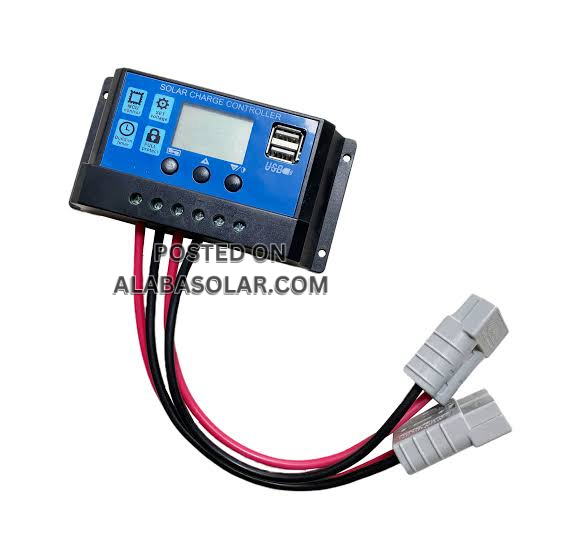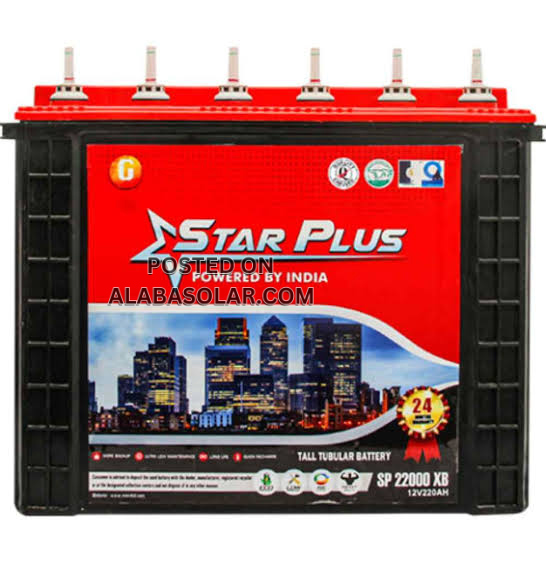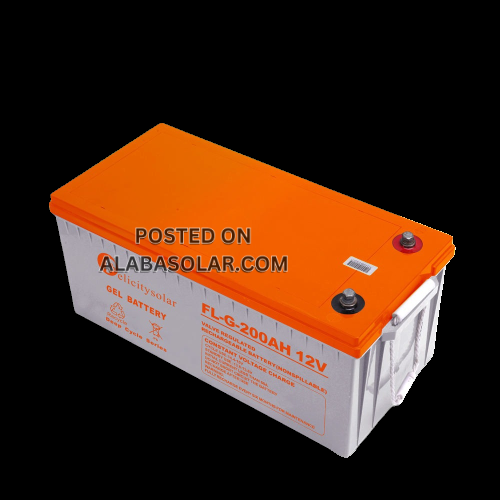
Solar Battery Prices in Nigeria: A Comprehensive Guide for 2025
Solar Battery Prices in Nigeria: A Comprehensive Guide for 2024
Imagine this: The lights flicker, the fan stops, and the TV screen goes black. Another power outage in Nigeria. You are left in darkness and your business grinds to a halt. This is a common story, costing households and businesses money. But what if there was a way to keep the lights on?
Solar energy is a bright idea for a dependable power source. Solar batteries are key to that. They store sunlight’s energy for when you need it most, especially during those blackouts.
This guide gives you the knowledge on solar battery prices in Nigeria. Discover what affects those costs and how to make smart choices. Keep reading to find out!
Understanding Solar Batteries and Their Importance in Nigeria
Solar batteries are a big part of a home solar power system. They work like rechargeable batteries for your gadgets, but bigger! They save extra energy from your solar panels, so you can use it later. This means you aren’t stuck when the power goes out. You become less reliant on the unreliable grid.
What is a Solar Battery and How Does It Work?
A solar battery stores the electricity that your solar panels generate. Most batteries use chemicals. They create a flow of electrons when charging or discharging.
There are various kinds. Lithium-ion batteries are now popular. They’re used in phones and EVs too. Then there are lead-acid batteries, which are cheaper but don’t last as long.
Important things to know include:
- Capacity: How much electricity the battery can hold (kWh).
- Voltage: The electrical pressure (Volts).
- Depth of Discharge (DoD): How much of the battery you can use before it needs recharging. Using more (higher DoD) can shorten lifespan.
The Benefits of Using Solar Batteries in Nigeria
In Nigeria, solar batteries offer big advantages. Power cuts are frequent. A solar battery gives you a backup. You keep the lights on and business running smoothly.
Batteries also cut your reliance on the grid. You use your stored solar power, which can lower those bills. Plus, solar energy is clean. Using batteries helps the environment by reducing pollution. It makes your energy use more sustainable.
Types of Solar Batteries Available in Nigeria
Many types of solar batteries exist. Here’s a quick breakdown:
- Lead-Acid: Old tech, but cheap. Options include flooded, AGM (Absorbent Glass Mat), and GEL. Flooded need maintenance. AGM and GEL are sealed.
- Lithium-Ion: More costly but perform better. Lithium Iron Phosphate (LFP) is safer and lasts longer than Nickel Manganese Cobalt (NMC).
- Emerging Technologies: New tech is in progress. It hopes to offer longer life and cheaper prices.
Choose based on your budget and energy requirements. Consider lifespan and how much maintenance is needed.
Key Factors Affecting Solar Battery Prices in Nigeria
Several things change the price of solar batteries. Knowing these helps you budget better.
Battery Type and Technology
The battery type is a big price influencer. Lead-acid batteries are usually cheaper than lithium-ion ones. LFP lithium-ion batteries might be more expensive than NMC, but they last longer. They are also safer.
Battery Capacity and Voltage
Bigger batteries cost more. A battery with 10 kWh capacity will cost more than a 5 kWh battery. Higher voltage batteries may also command a higher price, so too might increased storage capacity. Think about how much energy you use daily. Then size your battery accordingly.
Brand Reputation and Warranty
Well-known brands often cost more. They provide high-quality products and good customer support. Look for batteries with good warranties. A long warranty shows the manufacturer trusts the product.
Import Duties, Taxes, and Logistics
Nigeria imports many solar batteries. Import duties, taxes, and shipping costs add to the final price. These costs can also vary depending on where you are in Nigeria.
Estimated Solar Battery Prices in Nigeria (2024)
Prices change, so here are rough estimates for 2024. Remember to get current quotes from local suppliers.
Lead-Acid Battery Price Ranges
- Flooded Lead-Acid: ₦150,000 – ₦400,000 for a 12V, 200Ah battery. Good for basic backup. Expect a lifespan of 3-5 years.
- AGM/GEL Lead-Acid: ₦250,000 – ₦600,000 for a 12V, 200Ah battery. Needs less maintenance. Expect 5-7 years.
Lithium-Ion Battery Price Ranges
- LFP Lithium-Ion: ₦700,000 – ₦1,500,000 for a 48V, 100Ah battery. Lasts longer and performs better. It also has a lifespan of 8-10 years.
- NMC Lithium-Ion: Slightly cheaper than LFP. However, there might be slight compromise in safety.
Complete Solar System Cost with Battery Storage
A full solar system includes panels, an inverter, a charge controller, and batteries. Here are examples:
- Small Household (1-2kW system):₦1,500,000 – ₦3,000,000. Covers basic lighting and appliances.
- Medium Household (3-5kW system): ₦3,000,000 – ₦6,000,000. Powers more appliances.
- Large Household/Small Business (5-10kW system): ₦6,000,000 – ₦12,000,000. Can run most devices and some heavy machinery.
Installation costs vary. Get quotes from multiple installers.
How to Choose the Right Solar Battery for Your Needs
Picking the right battery involves some planning. Here is how you can do it:
Assessing Your Energy Consumption
Figure out how much electricity you use daily. Check your bills and list appliances. Work out how many hours each appliance runs. Energy monitors can help. Solar experts can also give advice.
Considering Depth of Discharge (DoD) and Lifespan
A higher DoD means you can use more of the battery. However, it might shorten its life. Pick batteries with good DoD and long lifespans. This saves money long-term.
Finding Reputable Suppliers and Installers in Nigeria
Check certifications and customer reviews. Ask about warranties. Get multiple quotes. A good installer can advise on the best battery. Also, they can install it correctly.
Conclusion
Solar battery prices in Nigeria depend on battery type, capacity, brand, and import costs. Picking the right battery takes research. Consider your energy needs and budget. Solar batteries provide reliable power. They cut costs and also aid the environment. Contact trusted solar installers today. Take the next step toward energy independence.
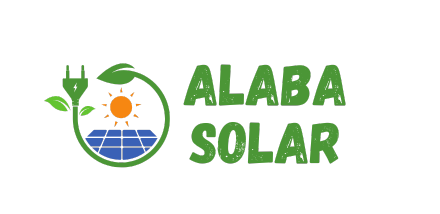

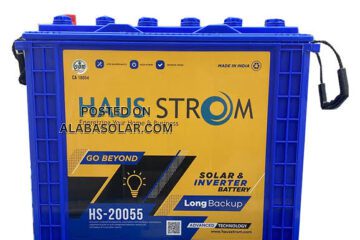
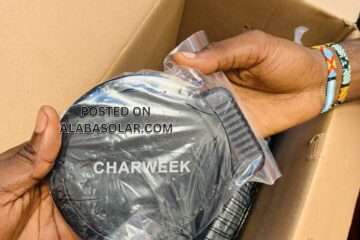
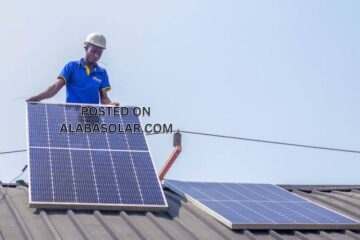
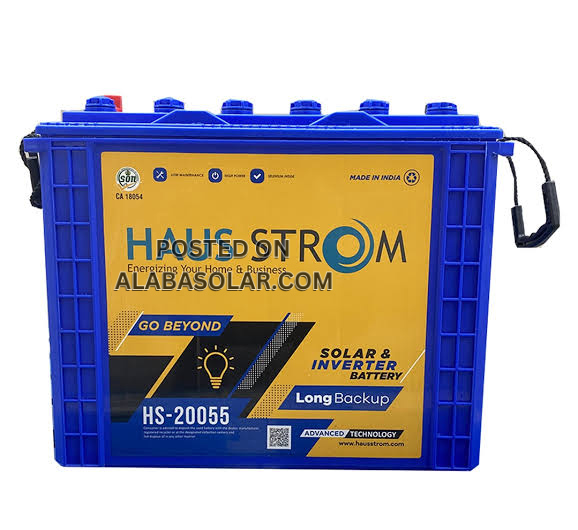
![Solar Inverter Prices in Nigeria [Hybrid & Transformer Based]](https://alabasolar.com/wp-content/uploads/2025/03/IMG_4192.jpeg)
